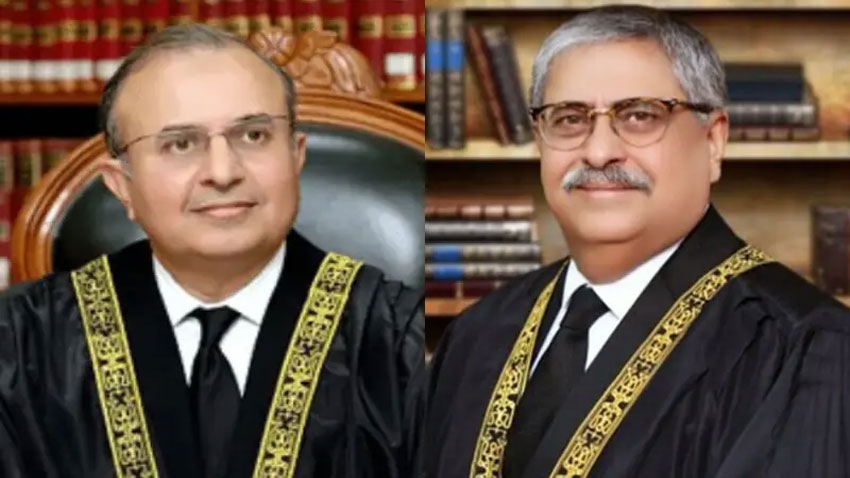
In his letter, Justice Minallah said that when he took the oath of office 11 years ago, he swore to uphold not “a constitution” but “the Constitution”. He wrote: “Prior to the passage of the 27th Amendment, I wrote to the Chief Justice of Pakistan, expressing concern over what its proposed features meant for our constitutional order.
“I need not reproduce the detailed contents of that letter, but suffice it to say that, against a canvas of selective silence and inaction, those fears have now come to be,” he added.
Regretting that the Constitution he swore to uphold was “no more”, Justice Minallah said that he “can think of no greater assault on its memory than to pretend that, as new foundations are now laid, they rest upon anything other than its grave”.
He wrote, “What is left of it is a mere shadow; one that breathes neither its spirit, nor speaks the words of the people to whom it belongs.”
The letter read, “These robes we wear are more than mere ornaments. They are to serve as a reminder of that most noble trust bestowed upon those fortunate enough to don them. Instead, throughout our history, they have too often stood as symbols of betrayal through silence and complicity alike.”
Read more: Field Marshal assures full security for Sri Lankan cricket team
Similarly, in his letter, Justice Mansoor Ali Shah termed the 27th Amendment “a grave assault on the Constitution of Pakistan”, saying that it “dismantles the Supreme Court of Pakistan, subjugates the judiciary to executive control, and strikes at the very heart of our constitutional democracy”.
“By fracturing the unity of the nation’s apex court, it has crippled judicial independence and integrity, pushing the country back by decades,” he wrote. “As history bears witness, such a disfigurement of the constitutional order is unsustainable and will, in time, be reversed - but not before leaving deep institutional scars.”
The judge stated that he had a choice between serving as an SC justice, which he said “undermines the very foundation of the institution one has sworn to protect”, or hand in his resignation.
“Staying on would not only amount to silent acquiescence in a constitutional wrong, but would also mean continuing to sit in a court whose constitutional voice has been muted,” he wrote. “Unlike the 26th Amendment — when the Supreme Court of Pakistan still retained the jurisdiction to examine and answer the constitutional questions — the present amendment has stripped this court of that fundamental and critical jurisdiction and authority.
“Serving in such a truncated and diminished court, I cannot protect the Constitution, nor can I even judicially examine the amendment that has disfigured it,” he stated.




